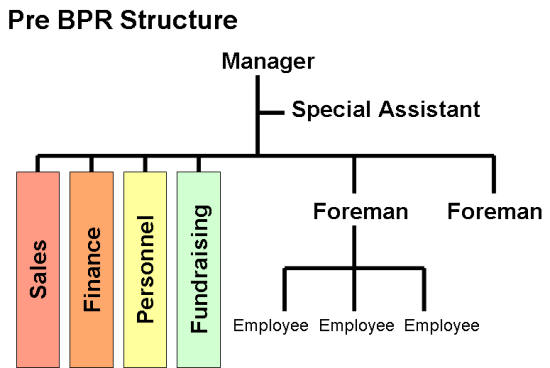 |
 |
|
AM Lecture 4Management > Asian Management > Culture-organisational background > Laoban characteristics > Structure > Effectiveness of structure > Guanxiqiye > Management problems
Management problemsAlthough SMEs seem fine, there are a few inherent management problems. For example, the good relationships are actually "pseudo harmony", in that people seek to avoid responsibility and conflict of interest with profitability. The leaders have been described as "householder management", being dictatorial and self-serving (In some ways this is effective, as they have to make decisions quickly and so the family head tends to run the business in order to do this. It means that the firms do not enlarge, as it is harder to make fast decisions). Therefore there needs to be a radical management change, with an emphasis on the development of ethical leadership. Fu et al. (2001) investigated the viability of BPR in a Taiwanese company ("Chengyang"). Pre-BPR they observed a highly centralised management system, where the manager was responsible for everything, from production to sales to marketing. There was no specialisation as a result. Internal structural problems were presented in the form of low efficiency and reduced profitability.
This remarkable unproductive structure reveals the cracks in the management style. The manager tries to do everything, from getting contracts to getting them to work. This is a failing technique, as work groups were found to now know what they were doing and they were badly paid and worked too hard. As a result of this poor management, the business loses direction.
Internationalisation of Taiwanese firms
|
|

